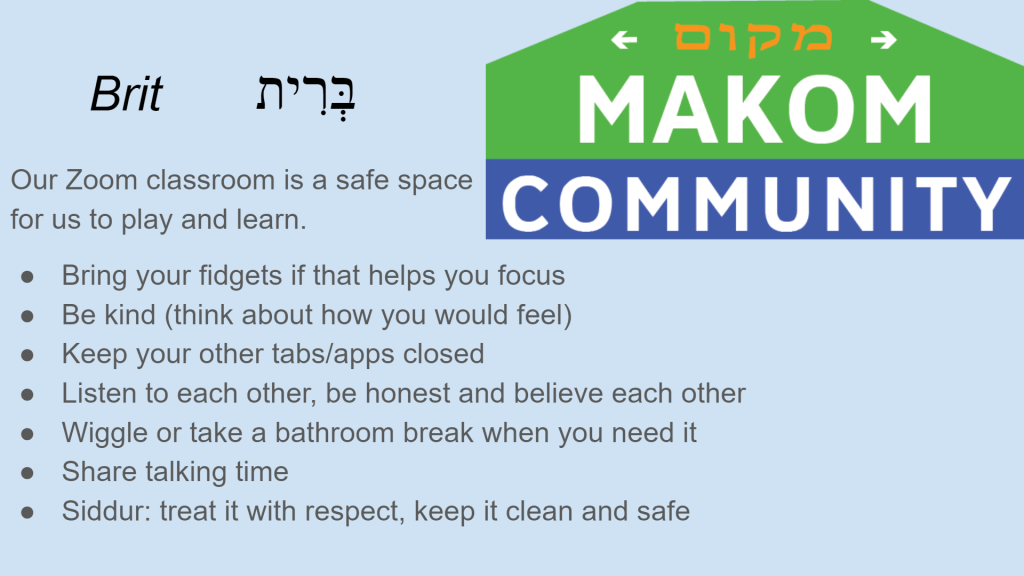Our next text is from Bereshit about how human beings were created in the image of God, b’tzelem elohim. We brainstormed a long list of what we know about God and what God does:
- 🌍🌎🌏 Earth God made Earth
- You can’t see God.
- God gave us the Torah
- God took us out of Egypt
- God created and said to Moses. God is somewhere in this world.
- People and God both make sure animals are safe
- God made people 👨👨
- God gave us plants, the earth, the sun
- God is part of you and everybody
- God goes on forever
- God made animals
- God created Shabbat
- God made light and darkness night and day
- God made forest and land ⛰🏞🏜🏕🏔🗻🌄🌅
The we thought about which of these are ways we are like God:
- God created the world. I see lots of creativity, people making things right now or art on the walls behind us.
- When we say Shema, we listen to God. Maybe God listens to “People: The Musical!”
- We all came from Adam the first person, so we’re all descended from the same person, and we all look different. It’s science.
- God does lots of different things. We all have special unique talents.
We also sang along to a B’tzelem Elohim song about being created in God’s image and all the different special things we each have to contribute.
The next week, we looked at a text from Bereshit Rabbah where Rabbi Akiva and Rabbi Tanchuma give their commentary on what being made in the image of God means about how we should treat each other:
Bereishit Rabbah 24:7
Quoting the Book of Vayikra, Rabbi Akiva said, “‘Love your neighbor as yourself’ is the greatest principle of the Torah. A person should not think, ‘Because I feel embarrassed, my friend should feel embarrassed along with me. Because I was cursed, my friend should be cursed along with me.’” Rabbi Tanchuma said: If you do this (and embarrass your friend), know whom you are embarrassing – for your friend was made in the Image of God.
We brainstormed on how we can de-escalate hard feelings without making our friends or neighbors feel bad too:
- Walk around
- Take a breath
- Listen to music
- Grab toy and sit in my bed
- Go upstairs and yell
Sometimes this takes help! We thought about ways we get support and give support, because different people need different support at different times.
- A way to help someone who is sad or embarrassed is to hug, give a toy or ask what was wrong or to say let’s play together or you want to be friends
- Or give them a suggestion on how to solve the problem
- 🧖🏼♀️ If someone is in the rain coming out of school say “you can borrow my umbrella”
We have been singing and dancing along in Tefilah. We also took some time to think about how to treat our Siddurim as special holy books:
- Don’t put food or play with them or put slime on them
- Don’t rip or get blood on it
- Don’t climb on it or put other things on top of it
- Keep them clean
- Don’t eat around them
- Don’t eat your siddur – no siddur smoothie!
- Keep it in your bag so you don’t lose it,
We summarized these ideas as “treat it with respect, keep it clean and safe” and added it to our class Brit, our promises to each other:

I can’t wait to keep learning with these kiddos!
